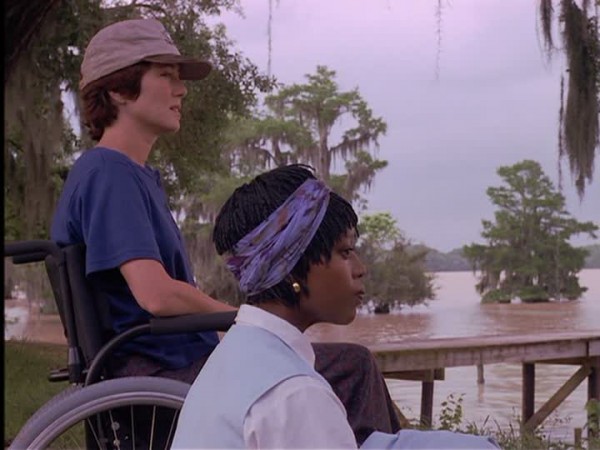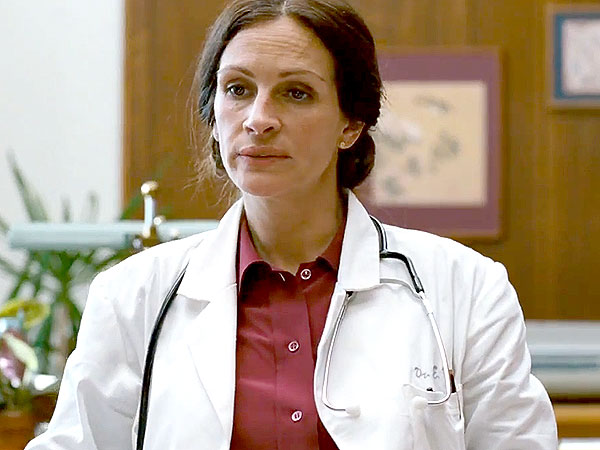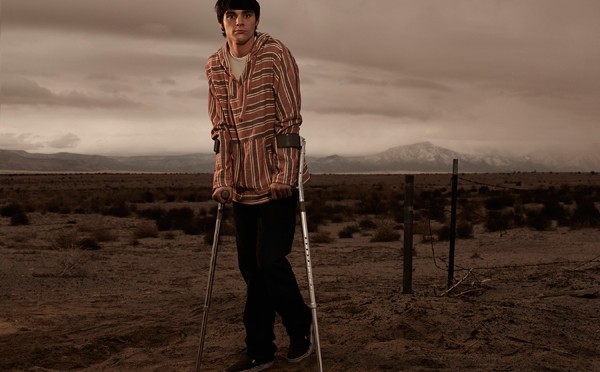I am the first in line to advocate for both better depictions of characters with disabilities and more opportunities for casting actors with disabilities.
As a person who is deeply embedded in the disability rights movement, I have heard the cries of my fellow crips when it comes to casting actors with disabilities. We are frustrated by both portrayals of characters with disabilities, and the lack of opportunities for actors with disabilities when it comes to auditioning and getting cast in any role in film, television, and even on stage. I also have an educated perspective, as I’ve spent the last several years intimately studying issues relating to film, the media, and disability. I’ve also experienced the ups and downs of casting my own projects. I am a filmmaker; more specifically, a film director, tasked with casting and working with all of the actors within each production I direct.
While I understand the frustration the disability community is experiencing, I also know that the issue is more complex than just casting an actor or actress with a disability. It shouldn’t be, but it is. The Hollywood system is designed to make it harder for actually disabled people to have the opportunity to play roles in commercial Hollywood productions. So many barriers seem to be used as excuses to keep us out, both in front of and behind the screen.
One of the things that is often used as an excuse for not casting disabled actors is the misconception that it is more financially advantageous for filmmakers to not cast actors with disabilities. Some of those misconceptions stem from already discriminatory insurance practices that may not even be legal anymore. I’m not sure if the passing of the Affordable Care Act has had any effect on the cost of insuring actors with disabilities, but it was often far less expensive to insure actors on a film set who were able-bodied prior to the ACA (it still may be true, but I’m not an expert on film financing). There is a widely held belief that an actor with a disability would cost studios more, so many directors will not even consider auditioning actors with disabilities.
Considering how much films cost to make, if you’re on a tight budget, you are already looking to cut corners, so a lot of producers believe it a waste to cast actors with disabilities, when they can save a few bucks and cast a non-disabled actor, in the same role. It’s not right, and it’s not fair, especially when you consider the fact that producers can save money in other ways, by casting authentically. For example, you won’t have to spend money on costly disability equipment because disabled individuals often bring their own or have access to get their own. Producers also save money by not having to pay for on set consultants who are experts on disability.
Like I said, I’m not sure if the Affordable Care Act’s rules against penalizing through insurance for those with pre-existing conditions, have affected this. Regardless, this is an issue the disability community needs to study further, and if it is still a problem, we need to work towards eradicating any unfair costs associated with casting actually disabled actors. It is a very discriminatory policy, and is something that could continue to affect whether actors with disabilities are cast in films or on television in the future.
The biggest complaint I hear, though, is the call for every character that has a disability to be given to actors with disabilities. I understand the inclination to want to cast anyone, because my own position on this has evolved, the more I have come to understand film and media representation. Representation matters, and unfortunately the vast majority of performances by non-disabled actors represent disability quite poorly. These portrayals actually have a negative effect on the disability community, and they affect how we are treated.
I cannot deny that making a film is, first and foremost, almost always about re-creating a world. To do that, you want the best actors for the job. I have always believed that equality was having the same opportunity as everyone else, and that means disabled actors deserve the same opportunities to audition as everyone else. I also believe that no one should get a job simply because they have a disability. I have auditioned disabled actors for roles that were not written specific to disability or not, and some of them have been horrible, so I did not cast them. At the same time, I do not believe non-disabled actors are the best actors for the job when the role involve disability, simply because you cannot replicate disability in a way that is authentic, unless you understand what it is like to live with a disability. It’s more than just physical characteristics, but often all we see are physical stereotypes and harmful tropes.
We need to see actors with disabilities cast in any role, and we need to see this happening in all forms of media. We need to see crew members with disabilities in all sectors of filmmaking, because we need to be working to tell authentic stories that just happen to involve characters with disabilities. We know our world the best, so we need to be participating in the industry to make sure they are told the right way.
There is so much work we need to do, to ensure disability in film and other forms of media is portrayed with greater authenticity. Here is where I believe we should begin:
1. We need to recognize that there are two distinctly separate issues affecting disability and the media. The first issue deals with characterizations of disability in film, television, and stage performances. The second involves the casting of actors with disabilities. I will address each issue separately, as we need to work on each separately, though I believe we should try to tackle both issues, right now.
2. The first step, for both issues previously listed, is awareness. We need to make the non-disabled majority familiar with both issues. While audiences have some influence over changing how characters with disabilities are portrayed, they only have limited pull when it comes to actually casting actors. They do, however, have a lot of sway when actually watching depictions of characters with disabilities and choosing to view films that feature disabled actors. They can choose to go to a movie or not. They can choose to watch a television show or not. If nobody is watching, no one is making any money, and really, in Hollywood, it’s all about making money.
One of the most important functions of the media is providing its audience with an understanding of people and situations of which they do not have any knowledge. A lot of people believe that portrayals of disability are accurate. Since many of them have little exposure to people with disabilities, or none at all, they are dependent on the media for their exposure to disability. As such, they do not, often, see anything wrong with these portrayals. It is our job, to educate them. I also believe we need to come at this with a cool head. Nobody likes being lectured, and I believe that if we are angry and demanding, it just hurts our cause. We need to educate them, and guide them to understanding why depictions are inaccurate. We need to make them our allies, not our enemies.
3. The first thing we need to do, when changing depictions of disabilities, is to have those writing about disabilities and characters with disabilities actually consult people with said disabilities. So often it is a writer writing about a friend or family member…even an acquaintance they knew with a disability. Rather than presenting an actual view of the person with the disability, the writer is portraying their vision of disability, as a spectator. It is their vision based on how they saw the person with the disability…and often they are not portraying the disability as it truly is.
Ableism is so deeply embedded within our society. As such, I truly and deeply believe that most non-disabled individuals have a skewed view of disability. Unless you live with a disability, I do not believe you can ever truly understand what it is like to live with a disability. So, talking to people with a disability, allowing them to read over what is written about their disability, and having them give feedback that is actually listened to, so the depictions can be improved, is the first step towards improving said depictions.
4. Beyond consulting current writers, we need to see writers with disabilities actually telling their own stories! This is paramount, and is even more important than non-disabled writers consulting disabled people. We know disability best, so we need to see screenwriters with disabilities emerging and telling their stories. We also need to see directors with disabilities, helping to bring those stories to life. Casting directors with disabilities could easily pick the right actors, and the job does it require
5. Non-disabled actors need to make a concerted effort to speak out against performing as disabled characters. We need to educate them the make them understand these portrayals are not okay. We need them to understand they are doing harm to the disability community, and that their representation as a disabled character, only seeks to hurt the community they are claiming to represent.
For example, Julia Roberts’ portrayal as Dr. Emma Brookner, in The Normal Heart leaves much to be desired. Roberts admitted she based her portrayal on a documentary she watched, about people with polio. As such, many found her portrayal much more the vision of an able-bodied view of disability, rather than an actual depiction. The same is true of many other performances as characters with disabilities including Mary McDonnell as paralyzed former actress, May-Alice Culhane in Passion Fish, Craig Lamar Traylor as Stevie the asthmatic kid in a wheelchair in Malcolm in the Middle, and Kevin McHale as the paralyzed teenager, Artie, on Glee.
6. With people with disabilities working behind the scenes in more roles in Hollywood, we also need to focus on getting actors in front of the screen, who have disabilities. I do believe that actors with disabilities more accurately portray disability, because we live with our disabilities. No one understands disability quite like we do. Part of my problem with directors and casting directors is, in many instances, they are not even inviting actors with disabilities to the table. How can we even get any jobs if we do not have any opportunities to audition? Geri Jewell, the first actor with a disability to appear regularly on television, has spoken about this. In her 30+ years career in Hollywood, she’s been given the opportunity to audition for about 30 roles. That is less than one a year. Actors without disabilities go on hundreds of auditions, each year, by comparison. It’s disgusting how few opportunities actors with disabilities get.
Ryan Murphy never even auditioned an actress with a disability, for the role of Dr. Emma Brookner. He just cast Julia Roberts, and claims he needed her name, to get people to watch The Normal Heart. If we’re not even invited to auditions for characters with disabilities, how are we even going to get a shot? We need to see actors with disabilities in Hollywood. We are the world’s largest minority, with over 1 billion people with disabilities worldwide. You’re telling me not one of us can act? I mean, Peter Dinklage is a great start, but I guarantee there is more of us, out there.
7. We need to avoid limiting roles, so they are not so disability specific. We need to avoid nitpicking about what actors with disabilities can play what roles. Sure, only actors with Down Syndrome can play characters with Down Syndrome, but they can play any other character, beyond just having Down Syndrome. What if we limit actors with Muscular Dystrophy to only playing characters with Muscular Dystrophy…how limiting would that be? I believe that, while each disability is different, many of us in the disability community share similar thoughts, feelings, and emotions, especially pertaining to our disabilities. Plus, We are more likely to consult our friends with disabilities, if we have any questions, about a specific disability. While many of us can identify what disability someone has, just by looking at them, most people in the able-bodied community cannot, and writing about disability generically eradicates such problems.
8. This brings me to my next point. Actors with disabilities need to have opportunities to be cast as people. It doesn’t need to have anything to do with disability. I truly believe that we will make the largest strides if and when we start casting actors with disabilities in roles that have nothing to do with disability. We are all people first, and if the able-bodied community sees us as people, who just happen to be in wheelchairs, have autism, be deaf or blind or bipolar, have crutches or canes or walkers, or have some other disability, which has little to no bearing on our abilities and possibilities as individuals, I deeply believe people will start to treat those of us with disabilities as actual people. It will allow for a much better understanding of disability, and people will not be afraid to talk or interact with us, in our everyday lives.
THIS is what I see as the most important issue in this entire discussion. Casting roles with actors with disabilities, no matter what the role is, tells the world…we’re here. We are people. We can function. We’re more than our disability. We NEED to change perceptions of disability and THIS is the way to do it.
Let’s stop focusing on casting actors with disabilities as characters with disabilities. Instead, let’s turn our focus towards casting actors with disabilities as people. Identifying the barriers placed in front of actors who have disabilities, when it comes to auditioning for roles, is an entirely different article I need to write. For now, let’s make Hollywood aware of our issues with disability in film, television, and on stage, and work from there. We need to start somewhere. This is the place to start.
Note: I have used the term actors, to reflect all genders, not just male. It is just easier than typing actor/actress, and I also consider non-binary gender roles when including people in the more generic term “actor”. Hopefully no one is offended by this.





Comments